Increased confidence is directly linked to balanced hormone levels in the body. When your hormones are in sync, you’re more likely to feel self-assured and ready to take on life’s challenges. Let’s dive into the relationship between hormones and confidence, and how you can harness this connection to feel your best.
Table of Contents
Key Takeaways:
- Hormones play a crucial role in regulating mood and confidence levels
- Testosterone and estrogen are key hormones that influence self-assurance
- Hormone optimization therapy can help balance hormone levels and increase confidence
- Lifestyle changes like exercise and diet can naturally boost confidence-enhancing hormones
- Stress reduction techniques can help lower cortisol, a hormone that can decrease confidence
- Regular check-ups and hormone testing are important for maintaining optimal hormone levels
The Hormone-Confidence Connection

Hormones are chemical messengers that regulate various bodily functions, including mood and behavior. When it comes to confidence, certain hormones play a starring role.
Testosterone: The Confidence Booster
Testosterone isn’t just for men. Both men and women produce this hormone, albeit in different amounts. Higher testosterone levels are associated with increased confidence, assertiveness, and risk-taking behavior.
Estrogen: The Mood Stabilizer
For women, estrogen plays a crucial role in mood regulation. Balanced estrogen levels can lead to improved emotional well-being and self-assurance.
Cortisol: The Confidence Killer
While not directly related to confidence, high levels of the stress hormone cortisol can negatively impact self-esteem and assertiveness.
Signs of Hormone Imbalance Affecting Confidence

Sometimes, a lack of confidence can be traced back to hormone imbalances. Here are some signs to watch out for:
Low Energy and Motivation
If you’re constantly feeling tired and unmotivated, it could be a sign of low testosterone or thyroid hormone imbalances.
Mood Swings and Irritability
Fluctuations in estrogen and progesterone can lead to mood swings, which can impact your overall confidence.
Difficulty Concentrating
Hormone imbalances can affect cognitive function, making it harder to focus and feel confident in your abilities.
Natural Ways to Boost Confidence-Enhancing Hormones

Before considering hormone therapy, there are several natural methods you can try to boost your confidence-enhancing hormones:
Exercise: Your Body’s Natural Hormone Booster
Regular physical activity, especially strength training, can naturally increase testosterone levels and reduce cortisol.
Nutrition: Eating for Hormone Balance
A diet rich in healthy fats, lean proteins, and complex carbohydrates can support hormone production and balance.
Sleep: The Ultimate Hormone Regulator
Getting adequate, quality sleep is crucial for maintaining healthy hormone levels and feeling confident.
Hormone Optimization Therapy for Increased Confidence

When natural methods aren’t enough, hormone optimization therapy can be a game-changer for many individuals struggling with confidence issues related to hormone imbalances.
What is Hormone Optimization Therapy?
Hormone optimization therapy involves carefully balancing hormone levels through medical intervention, often using bioidentical hormones.
Benefits of Hormone Optimization for Confidence
Patients who undergo hormone optimization often report increased energy, improved mood, and greater self-assurance.
The Importance of Personalized Treatment
Every individual’s hormone profile is unique, which is why personalized treatment plans are crucial for success.
The Role of Stress Management in Hormone Balance
Chronic stress can wreak havoc on your hormones and, by extension, your confidence. Here are some effective stress management techniques:
Mindfulness and Meditation
These practices can help lower cortisol levels and promote a sense of calm and self-assurance.
Regular Relaxation
Setting aside time for activities you enjoy can help reduce stress and boost confidence-enhancing hormones.
Social Connections
Strong social bonds can help reduce stress and increase oxytocin, a hormone associated with trust and bonding.
The Impact of Age on Hormones and Confidence
As we age, hormone levels naturally decline, which can impact confidence. Here’s what you need to know:
Menopause and Andropause
These life stages can significantly affect hormone levels and, consequently, confidence.
The Importance of Regular Check-ups
Regular hormone level testing becomes increasingly important as we age to catch and address imbalances early.
Lifestyle Factors That Affect Hormone Balance and Confidence
Your daily habits can have a big impact on your hormone levels and confidence. Consider these factors:
Environmental Toxins
Exposure to certain chemicals can disrupt hormone balance. Minimizing exposure can help maintain healthy hormone levels.
Alcohol and Caffeine Consumption
Both can affect hormone production and metabolism. Moderation is key for maintaining balance.
Technology Use
Excessive screen time, especially before bed, can disrupt sleep patterns and hormone production.
The Psychology of Confidence and Hormones
While hormones play a crucial role in confidence, psychological factors are equally important. Here’s how they interact:
The Feedback Loop
Feeling confident can boost testosterone levels, which in turn can increase confidence, creating a positive cycle.
The Power of Positive Thinking
Cultivating a positive mindset can influence hormone levels and boost overall confidence.
Body Language and Hormones
Research shows that adopting confident postures can increase testosterone and decrease cortisol levels.
When to Seek Professional Help for Increased Confidence Issues
If you’ve tried natural methods and still struggle with confidence, it may be time to consult a healthcare professional:
Signs It’s Time to See a Doctor
Persistent mood issues, fatigue, and unexplained physical symptoms could indicate a hormone imbalance.
What to Expect During a Hormone Evaluation
A thorough evaluation typically includes a comprehensive health history, physical exam, and hormone level testing.
Treatment Options
Depending on your specific situation, treatment may include lifestyle changes, supplements, or hormone replacement therapy.
Measuring Progress: Tracking Confidence and Hormone Levels
Monitoring your progress is key to successful hormone optimization and confidence building:
Keeping a Confidence Journal
Regularly recording your mood and confidence levels can help you track improvements over time.
Regular Hormone Testing
Periodic hormone level checks can help ensure your treatment plan is working effectively.
Adjusting Your Plan
As your body changes, your hormone needs may change too. Be prepared to adjust your approach as needed.
The Future of Hormone Optimization and Confidence Research
The field of hormone optimization is constantly evolving. Here are some exciting developments to watch:
Advances in Hormone Testing
New technologies are making hormone testing more accurate and accessible.
Personalized Medicine
The future of hormone therapy lies in highly personalized treatment plans based on individual genetic and lifestyle factors.
Integrative Approaches
Combining hormone optimization with other therapies, such as cognitive behavioral therapy, shows promise for comprehensive confidence boosting.
| Hormone | Role in Confidence | Natural Boosters |
|---|---|---|
| Testosterone | Increases assertiveness and risk-taking | Strength training, adequate sleep, zinc-rich foods |
| Estrogen | Stabilizes mood and promotes emotional well-being | Flaxseeds, soy products, regular exercise |
| Cortisol | High levels can decrease confidence | Stress management techniques, regular sleep schedule |
| Oxytocin | Promotes trust and social bonding | Physical touch, social interactions, pet ownership |
| Serotonin | Regulates mood and promotes feelings of well-being | Exposure to sunlight, regular exercise, tryptophan-rich foods |
| Confidence-Boosting Activity | Hormonal Effect | Recommended Frequency |
|---|---|---|
| Strength Training | Increases testosterone and growth hormone | 2-3 times per week |
| Meditation | Reduces cortisol | Daily, 10-20 minutes |
| Social Interactions | Boosts oxytocin and serotonin | Several times per week |
| Outdoor Activities | Increases vitamin D and serotonin | 2-3 times per week |
| Power Posing | Temporarily boosts testosterone, lowers cortisol | As needed, especially before important events |
- Natural ways to boost confidence-enhancing hormones:
- Engage in regular physical exercise, especially strength training
- Maintain a balanced diet rich in essential nutrients
- Prioritize quality sleep and establish a consistent sleep schedule
- Practice stress-reduction techniques like meditation or deep breathing
- Spend time outdoors and in nature
- Cultivate strong social connections and engage in positive social interactions
- Challenge yourself with new experiences and learning opportunities
- Adopt confident body language and postures
Conclusion:
Increased confidence isn’t just about positive thinking or self-help books. It’s deeply rooted in our biology, particularly our hormones. By understanding the hormone-confidence connection and taking steps to optimize your hormone levels, you can set yourself up for greater self-assurance and success in all areas of life.
Remember, everyone’s journey to increased confidence is unique. What works for one person may not work for another. It’s important to listen to your body, work with healthcare professionals, and be patient as you find the right balance for you.
Whether through natural methods, lifestyle changes, or hormone optimization therapy, the path to increased confidence is within reach. By taking a holistic approach that addresses both the physical and psychological aspects of confidence, you can unlock your full potential and face life’s challenges with renewed self-assurance. Feel free to visit our website or contact us now to take the first step towards a healthier, more active lifestyle!


